International Journalism and Communication Deans Conference (2020) was held at Renmin University of China on October 24 with a theme of "Outlook and Care: Journalism and Communication in the Context of the Global Pandemic". Organized both online and offline, the conference invited deans, experts and scholars from journalism and communication schools at home and abroad. A live webcast was conducted with more than two thousand viewers.
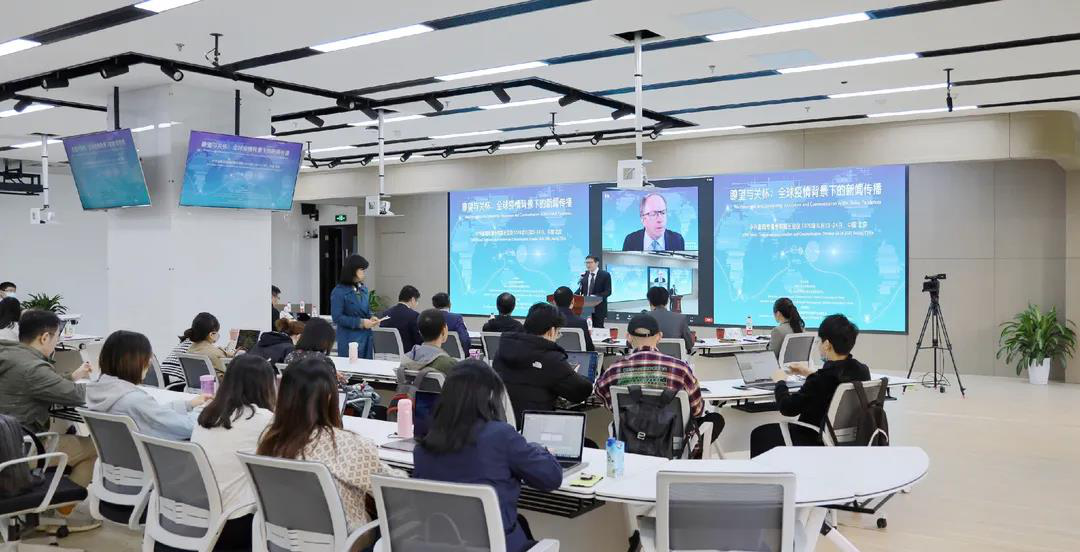
Professor Liu Wei, President of Renmin University of China, pointed out in his welcome speech that new ways to deal with technological challenges are required in an era of technological transformation in journalism and communication, which are also the focus of the academia. The theme of this conference " Outlook and Care: Journalism and Communication in the Context of the Global Pandemic " is closely integrated with the current global social situation. It has both an international perspective and humanistic care, reflecting the academic stand of Renmin University of China based on the society, rooted in the people, and inquiring about the profession.
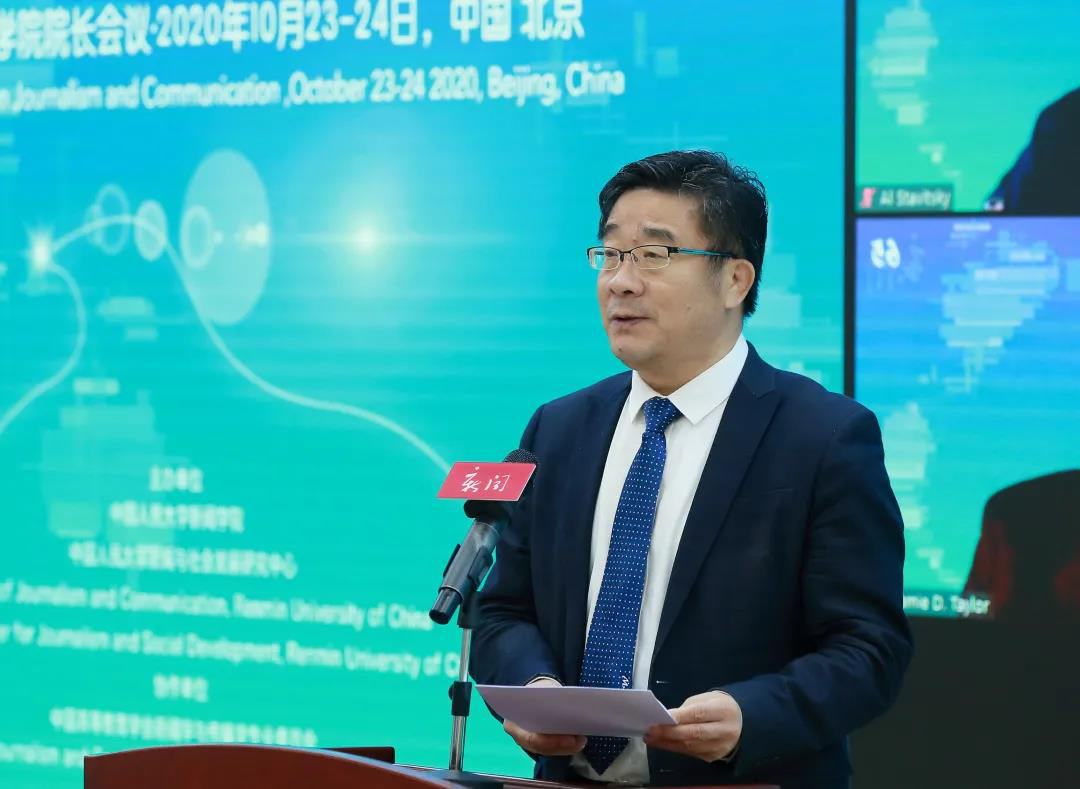
Professor Liu Wei, President of Renmin University of China, is delivering speech.
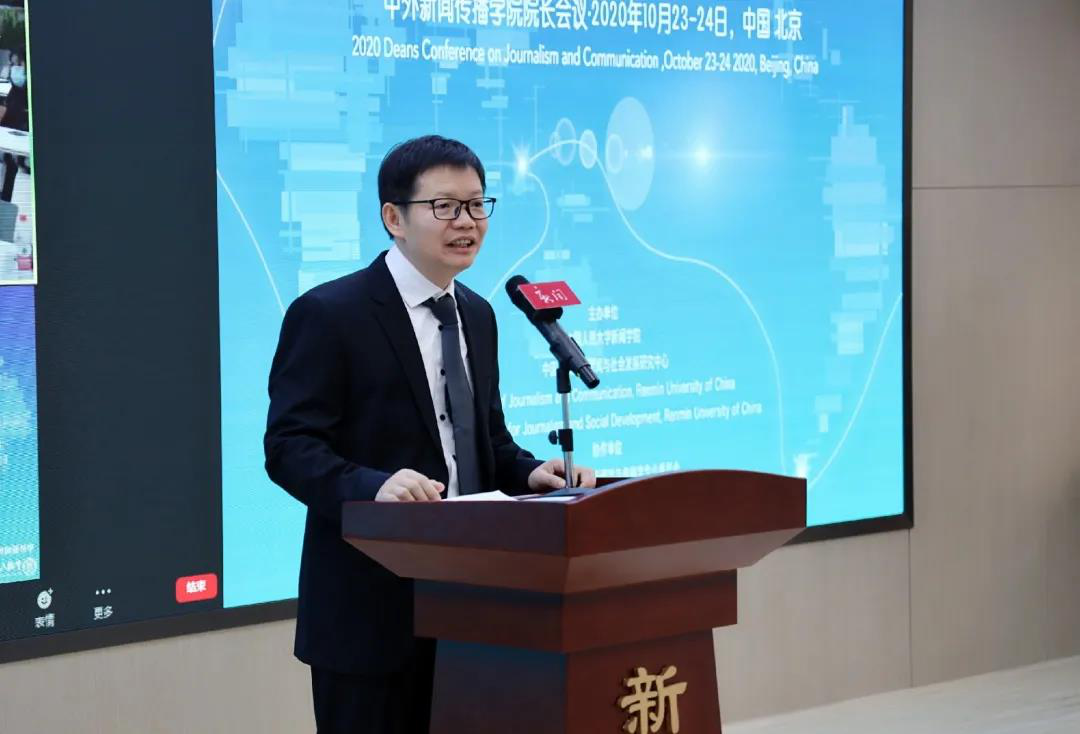
Professor Zhou Yong, Party Committee Secretary and Associate Dean of School of Journalism and Communication, Renmin University of China
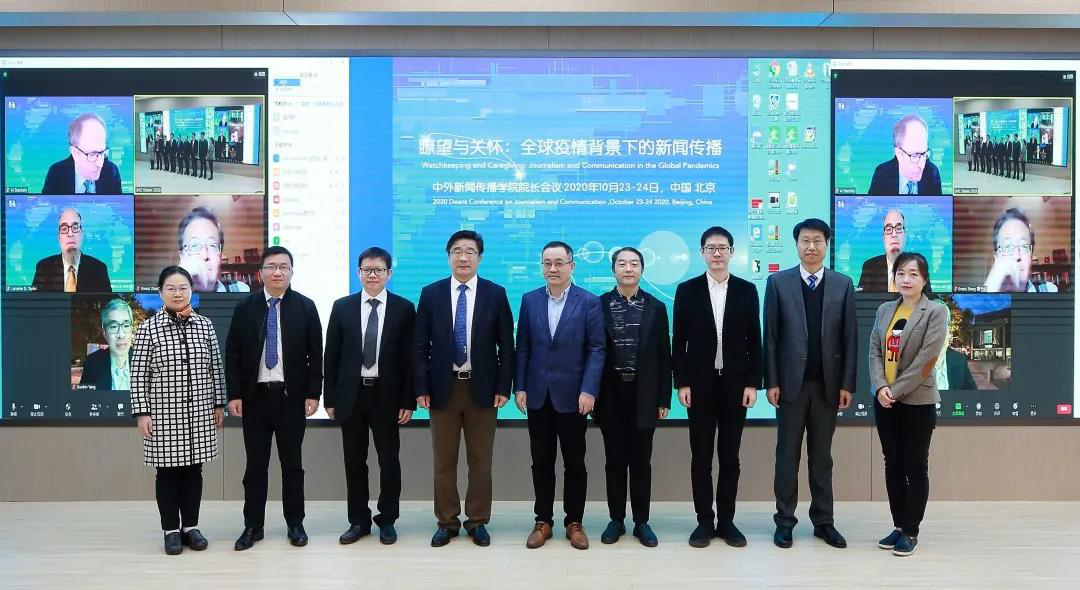
A photo of President Liu Wei and all the guests in the conference offline after the opening ceremony
Three round-table meetings were held in the conference with the themes of "Higher Education during the Pandemic: Perseverance and Change", "Journalism Ethics during the Pandemic: Procedures and Principles", and "Journalism Practice during the Pandemic: Speed and Care".
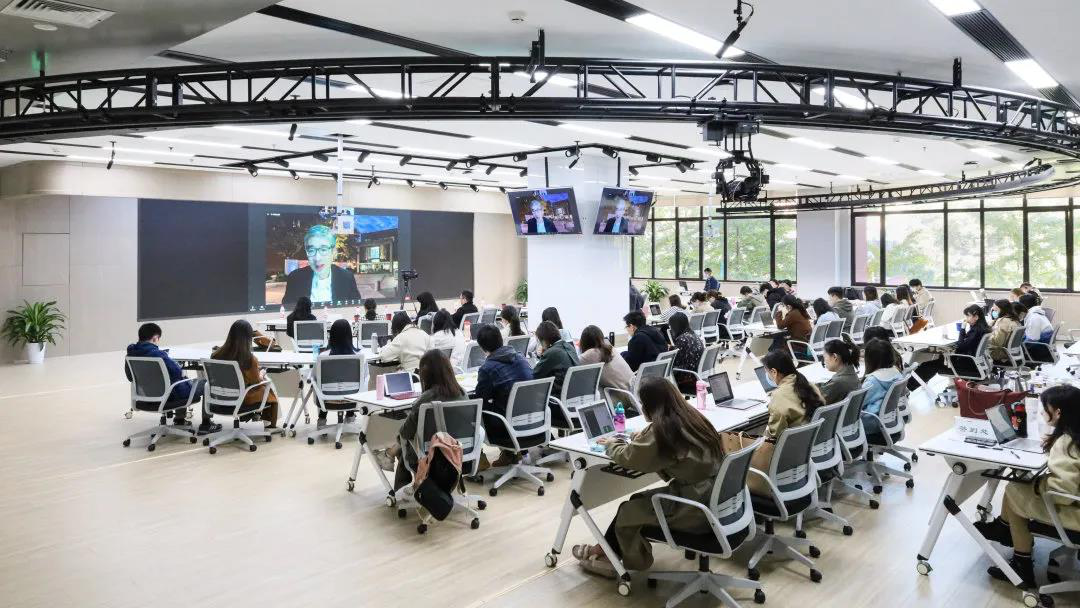
The first round-table meeting "Higher Education during the Pandemic: Perseverance and Change" was hosted by Professor Huifeng Zhang, Associate Dean of School of Journalism and Communication, Renmin University of China.
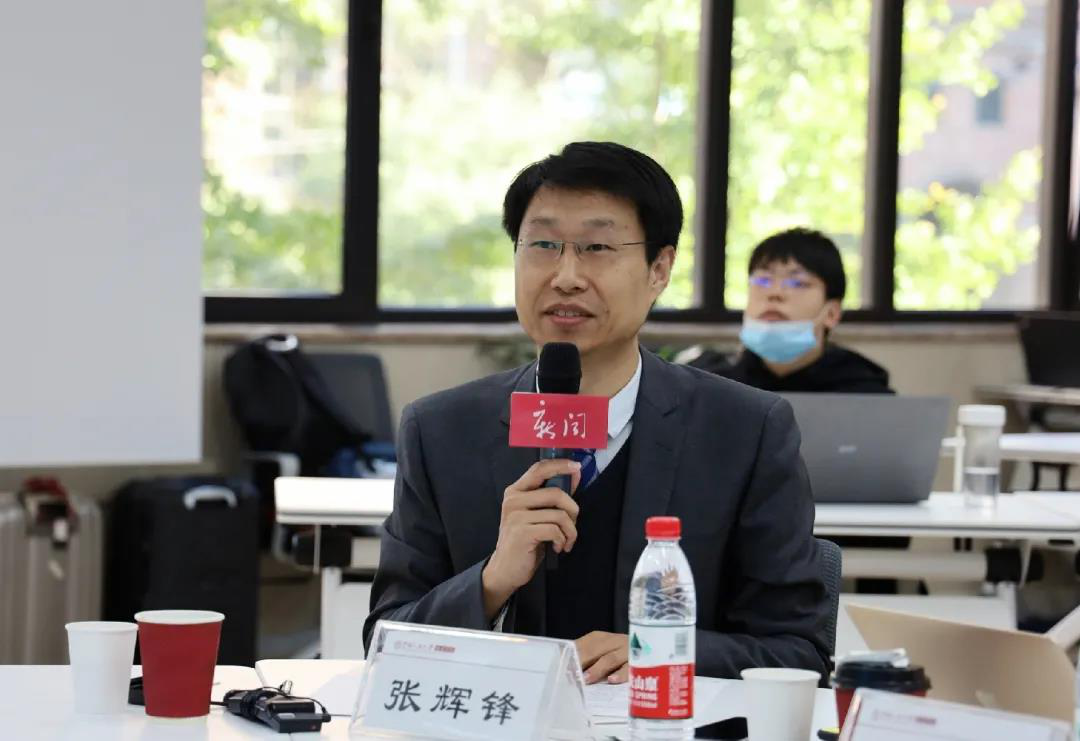
Huifeng Zhang, Professor, Associate Dean of School of Journalism and Communication, Renmin University of China
【Host of the First Round-table Meeting】
Professor Taofu Zhang, Executive Dean and Secretary of the Party Committee of the School of Journalism of Fudan University, talked about the changes in journalism education in the context of the pandemic with the theme of "Circuit Breaking and Innovation". The uncertainty accumulated in human world and the uncertainty, contagion, and lethality of viruses have affected human rationality and self-confidence to a certain extent. Under this circumstance, the three major missions of journalism education—talent training, scientific research, and social service—have also encountered unprecedented challenges. Therefore, we need to rebuild journalism education at the levels of value, knowledge, and capability: rethink basic core values, seek more "hard core knowledge", and build journalism and communication disciplines that serve the society, so that we can establish new values and order in a state of disorder.
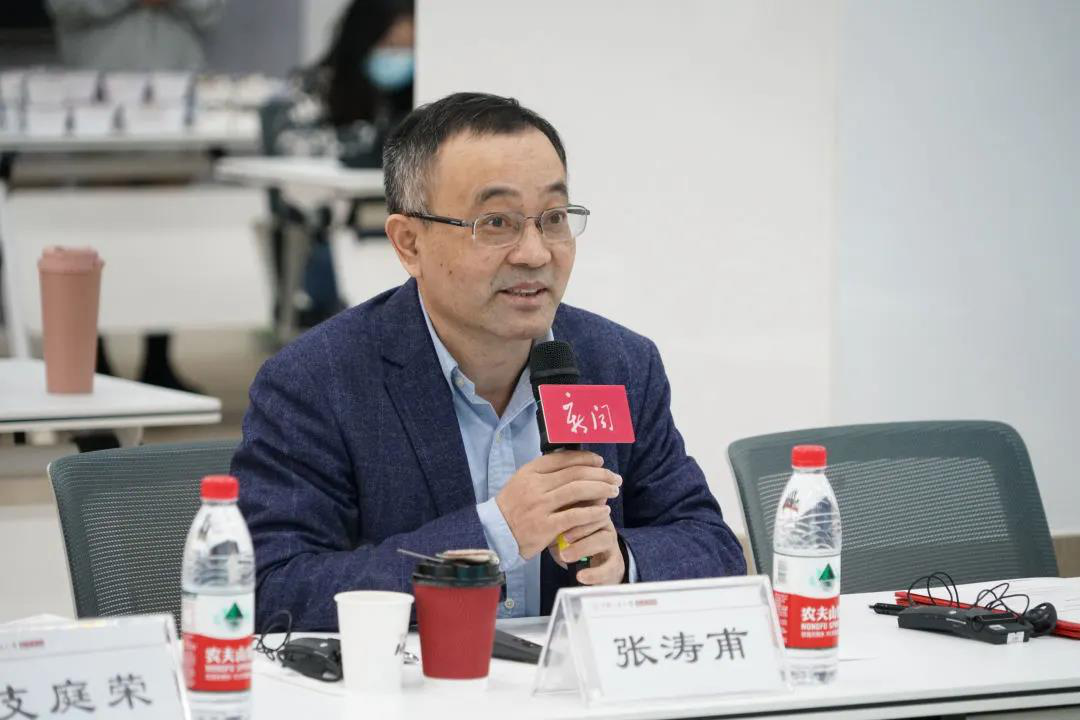
【Circuit Breaking and Innovation: Journalism Education in the context of the Pandemic】
Professor Taofu Zhang, Executive Dean and Secretary of the Party Committee of the School of Journalism of Fudan University
Professor Fritz Cropp, vice Dean of the School of Journalism at the University of Missouri, highlighted how Missouri School of Journalism with a history of 100 years responded to the impact of the global crisis. First, it still provides students with as comprehensive news practices as possible. Second, it adds more interactive methods to promote the exchange of information in the community and campus. Third, it makes full use of online methods so that news research and teaching projects are not interrupted.
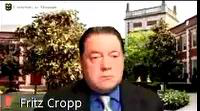
【Adhering to High-quality Journalism Teaching and Research against the Background of the Global Crisis】
Professor Fritz Cropp, Associate Dean of the School of Journalism at the University of Missouri
Professor Yang Guobin, Associate Dean of the Annenberg School of Communication at the University of Pennsylvania, focused on the amplification effect of the pandemic on the complexity of American society, and pointed out that journalism education should not only exist in the ivory tower. The pandemic has exposed the seriousness of social inequality and racial discrimination in the United States. Therefore, the Annenberg School of Communication at the University of Pennsylvania is thinking about the ways to further study the relationship between various social inequality issues, to deal with racial issues, and to pay more attention to social justice.
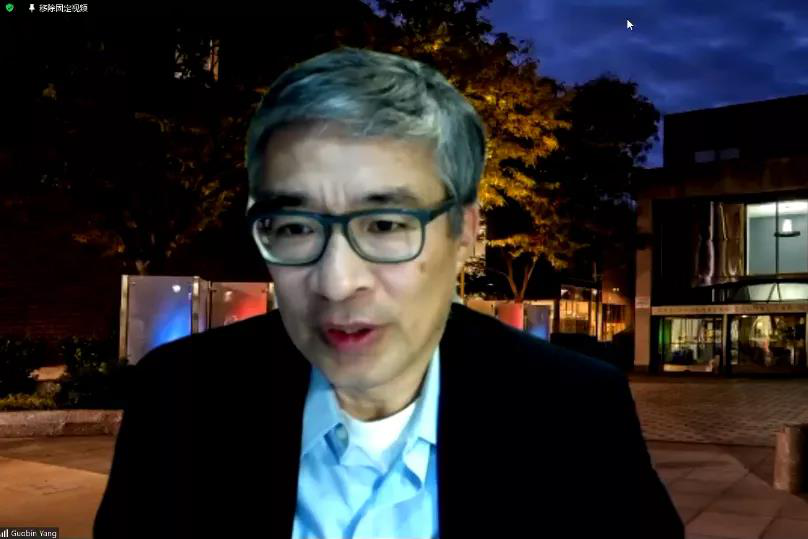
【Journalism Research and Education Practice of Annenberg School of Communication under the Pandemic】
Professor Yang Guobin, Associate Dean of the Annenberg School of Communication at the University of Pennsylvania
Professor Wei Lu, Dean of the School of Media and International Culture of Zhejiang University, compared in five aspects the similarities and differences between journalism educations in China and the US: educational philosophy, professional setting, curriculum system, faculty, and employment. Educational philosophy differs in these two countries, while similarities exist in professional setting, curriculum system and faculty, areas that China needs to learn from the United States. Meanwhile, journalism and communication academia in China look forward to strengthening exchanges with the US counterparts.
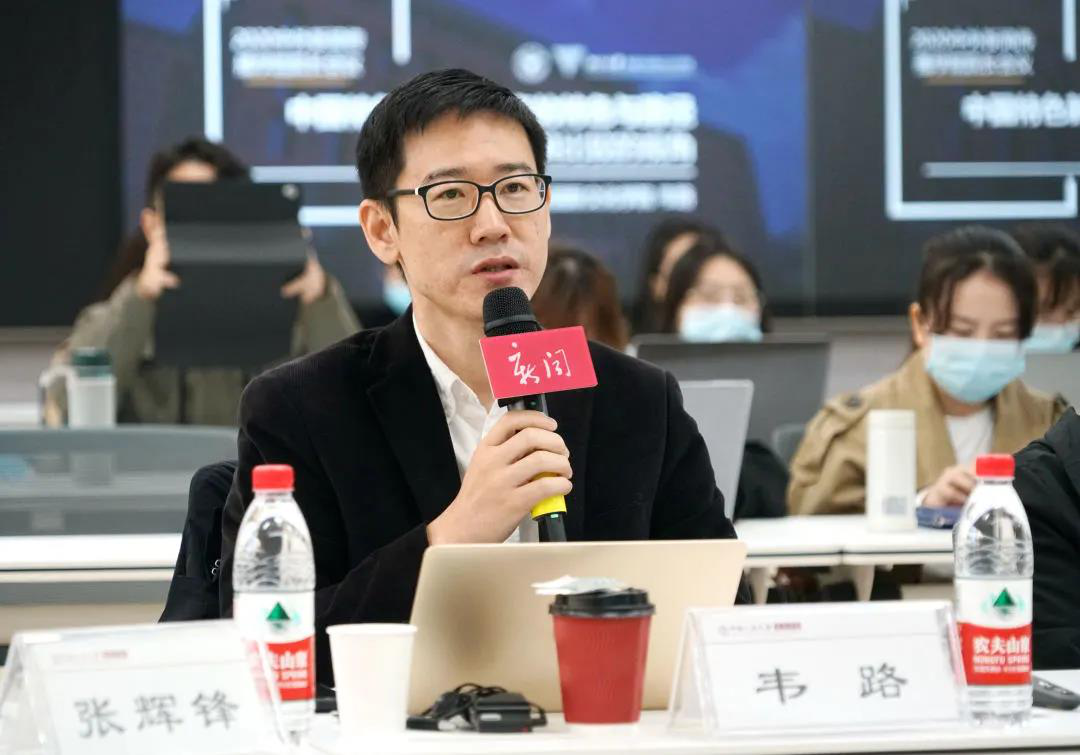
【Characteristics and Paths of Journalism Education with Chinese Characteristics——a Comparative Perspective between China and the US】
Professor Wei Lu, Dean of the School of Media and International Culture of Zhejiang University
Professor Alan Stavitsky, Dean of the School of Journalism of the University of Nevada, introduced the three reform directions of the School of Journalism of the University of Nevada under the framework of "Persevere and Change". First, learn from the new business model of the media industry to respond to changes brought about by the rapid development of the Internet. Second, introduce general education in journalism and communication for students from various departments to alleviate people’s distrust of the media. Third, innovate curriculum settings, using online and offline teaching, informal teaching, and modules to optimize the school curriculum.

【Reimagining Journalism Education】
Professor Alan Stavitsky, Dean of the School of Journalism of the University of Nevada
The second round-table meeting "Journalism Ethics during the Pandemic: Procedures and Principles" was hosted by Professor Runze Wang, Associate Dean of School of Journalism and Communication, Renmin University of China.
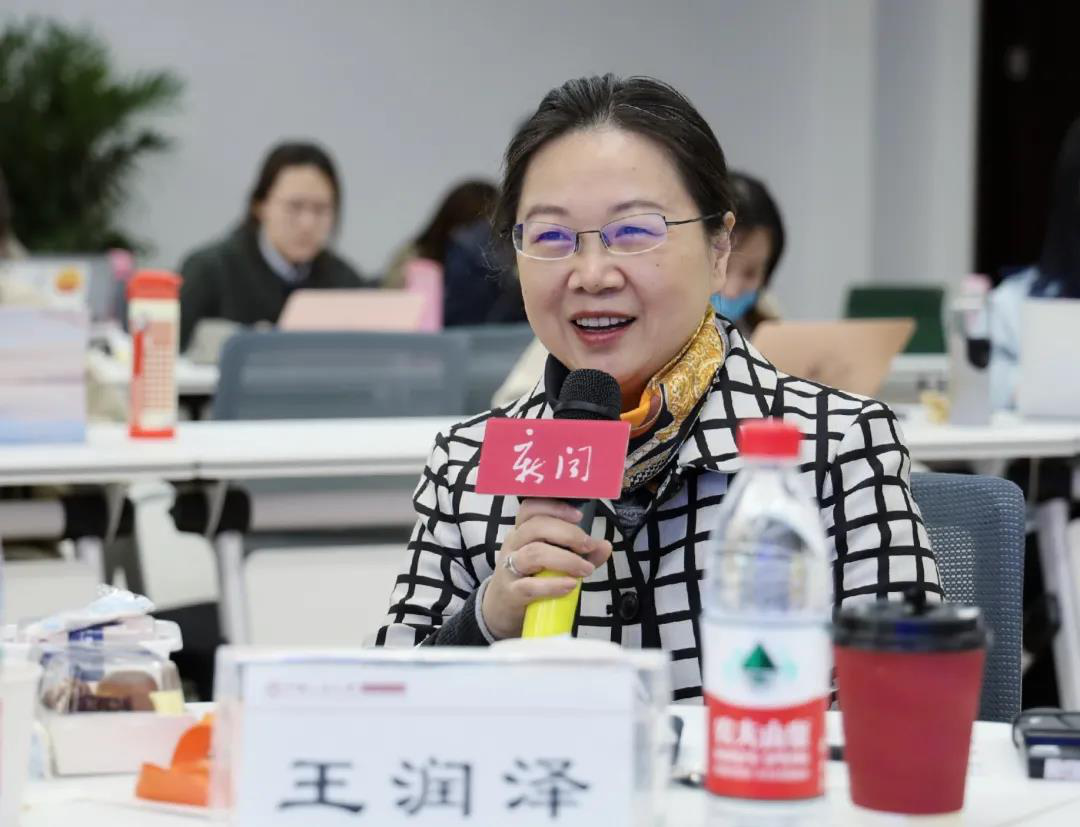
【Host of the Second Round-table Meeting】
Professor Runze Wang, Associate Dean of School of Journalism and Communication, Renmin University of China
Professor Laramie Taylor, Dean of the School of Communication Studies at the University of California, Davis, focused on the impact of globalization on news media production and ethical practices, and used two core moral principles as standard: truthfulness and accuracy, and public interest. In the context of globalization, the truthfulness and accuracy of news has become more important, because reporters need to consider how global audiences interpret information; at the same time, facing global audiences, reporters should also think about how to achieve cross-cultural public understanding and respect.
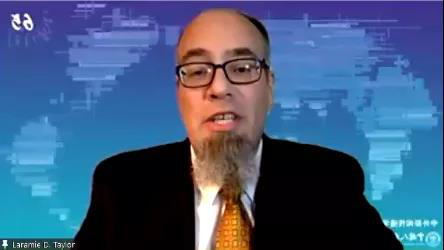
【Impact of Globalization on the Ethics of Journalism and Communication】
Professor Laramie Taylor, Dean of the School of Communication Studies at the University of California, Davis
Professor Youli Liu, Dean of the School of Media and Communication, City University of Hong Kong, stressed the rethinking of journalism ethics in the context of the pandemic. First, she said that we must adhere to the authenticity of the news, not seeking speed, to fight all types of fake news. Second, whether as a media member or as a citizen, we must exercise our own right of asserting accountability. Third, when the media is introducing medical knowledge in a report, it’s important to pay attention to the accuracy of terminology and humanistic care.

【Journalism Ethics in the Context of the Pandemic】
Professor Liu Youli, Dean of the School of Media and Communication, City University of Hong Kong
Professor Sui Yan, Dean of the School of Journalism and Communication, Communication University of China, focused on re-understanding the concept of "using time to eliminate space" in Marxist journalism, and believed that it would be better to understand it as "using time to conquer space". From a historical perspective, from Cooley’s saying that “railroad is a medium” to today’s various intelligent communication practices, the space conquered per unit time has become larger, and the frequency of interaction and communication continues to increase. As a result, changes have happened in the relationships between people, between people and society. Information about the pandemic at home and abroad, responds quickly under the evolution of the concept of "using time to conquer space".
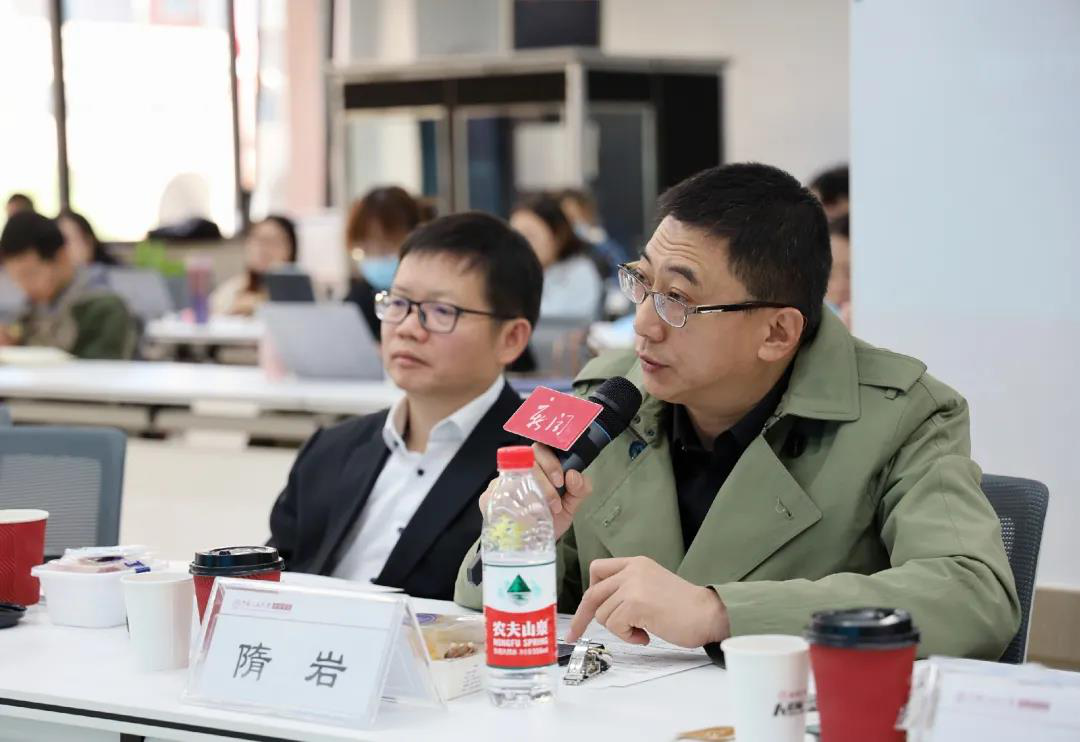
【Trend of "Using Time to Conquer Space"】
Professor Sui Yan, Dean of the School of Journalism and Communication, Communication University of China
Professor Zhang Zhian, Dean of the School of Communication and Design of Sun Yat-sen University, introduced several cases of professional media’s ethical failures in public communication practices, revealing that the pandemic has brought us thinking about journalism ethics. First, in crisis situations, the consensus of scientists is important. Second, while adhering to authenticity, avoid being engulfed by certain national sentiments. Third, not to cater to online sentiments in social media. Fourth, run positive reports at an appropriate level and maintain sufficient humanistic care.
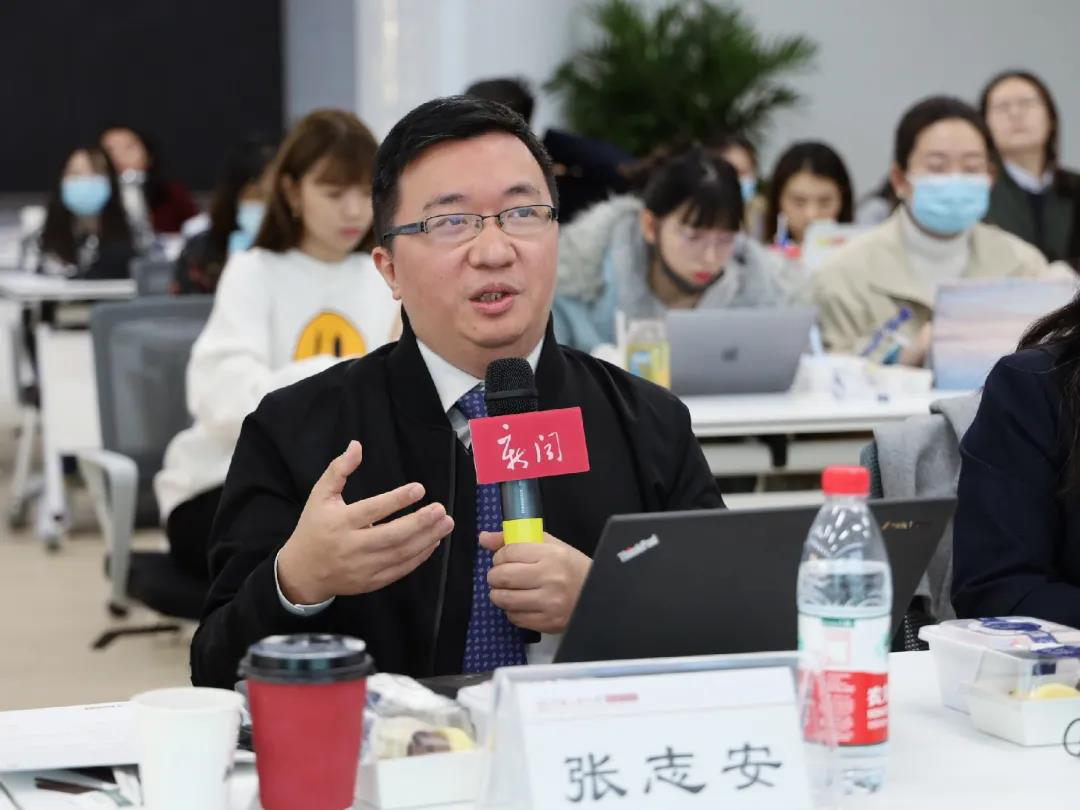
【Pandemic Reporting and Public Communication-the Anomie, Boundary and Reflection of "News" Ethics】
Professor Zhang Zhian, Dean of the School of Communication and Design of Sun Yat-sen University
Dr. Ernest Zhang, Director of the China Program of the School of Journalism at the University of Missouri, introduced the research on the use of image restoration theory to restore the image of local governments. Research using discourse analysis methods shows that seven discourse strategies have been successfully used; on the whole, the images the governments of Hubei and its capital city Wuhan have been restored in the early stages of the Covid pandemic.

Dr. Ernest Zhang, Director of the China Program of the School of Journalism at the University of Missouri
【Repair the Image of Local Government Using Image Restoration Theory and Strategy】
The third round-table meeting "Journalism Practice during the Pandemic: Speed and Care" was hosted by Professor Yong Zhou.

【Host of the Third Round-table Meeting】
Yong Zhou, Professor, Party Committee Secretary and Associate Dean of School of Journalism and Communication, Renmin University of China
Professor Yuexin Qiang, Dean of the School of Journalism and Communication of Wuhan University, believes that the changes brought by the pandemic to the press are mainly in three aspects: professionalism, that is, to adhere to truth and objectivity; humanistic care, that is, news reports can promote the treatment of the pandemic; integrated innovation, that is, major emergencies provide an opportunity for technology-based integrated innovation.
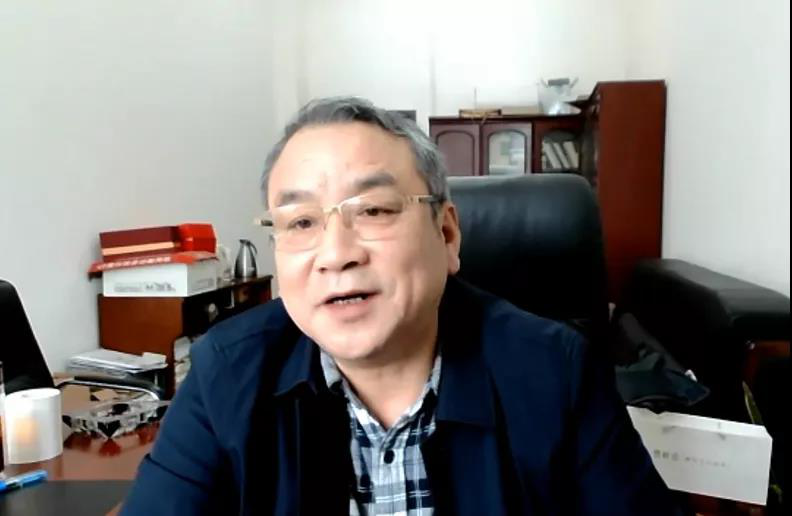
【Impact of the Pandemic on the Press: Professionalism, Humanistic Sentiments, Integrated Innovation】
Professor Yuexin Qiang, Dean of the School of Journalism and Communication of Wuhan University
Professor Benqian Li, Dean of the School of Media and Communication at Shanghai Jiaotong University, reviewed the emergency response in China’s history and pointed out that the current response to the pandemic reflects China’s advanced governance philosophies. He also stressed that the media must have guidance and unified planning, and must pay attention to timeliness and speed while embodying care for the people.
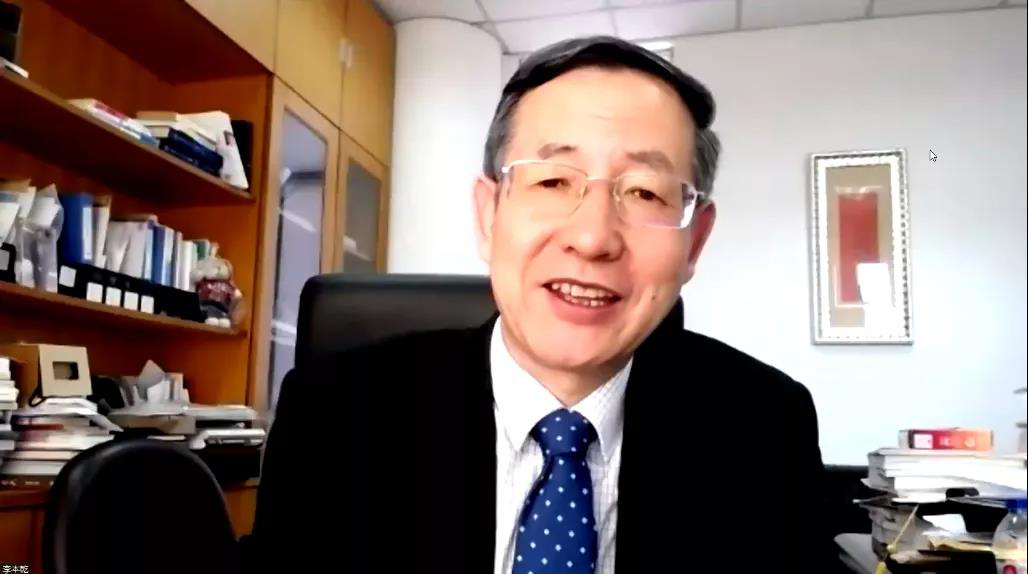
【"Speed and Care" of the Media during the Pandemic】
Professor Benqian Li, Dean of the School of Media and Communication at Shanghai Jiaotong University
Professor Tingrong Zhi, Dean of the School of Journalism and Communication of Jinan University, expounded his thinking with two key concepts: information pandemic and information relief. Information pandemic refers to the chaotic state of some information during the pandemic, including all kinds of fake news. "Information relief" is used to describe the media’s ability to perform the relief function during the emergency. During the pandemic, the media can play a larger and more proactive role, shouldering greater responsibilities.
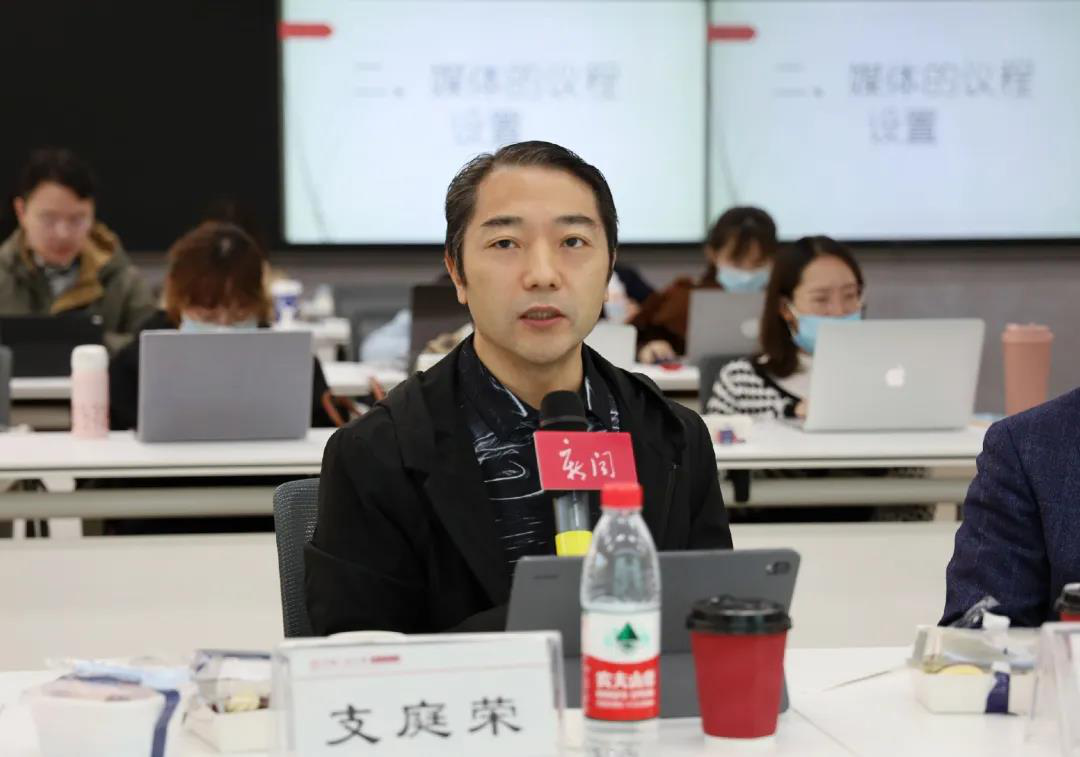
【information Pandemic VS Information Relief】
Professor Tingrong Zhi, Dean of the School of Journalism and Communication of Jinan University
Professor Mingxin Zhang, Dean of the School of Journalism and Information Communication of Huazhong University of Science and Technology, summed up the characteristics of news reporting practices in the pandemic as “fast, deep and comprehensive”. “Fast” refers to the speed at which authoritative information was released and the media responded. “Deep” refers to the depth of the media portraying and recording the era, and the depth of concern from reporters staying at the front line. “Comprehensive” refers to the comprehensive integration of media reports, including the form, the text and the subject.
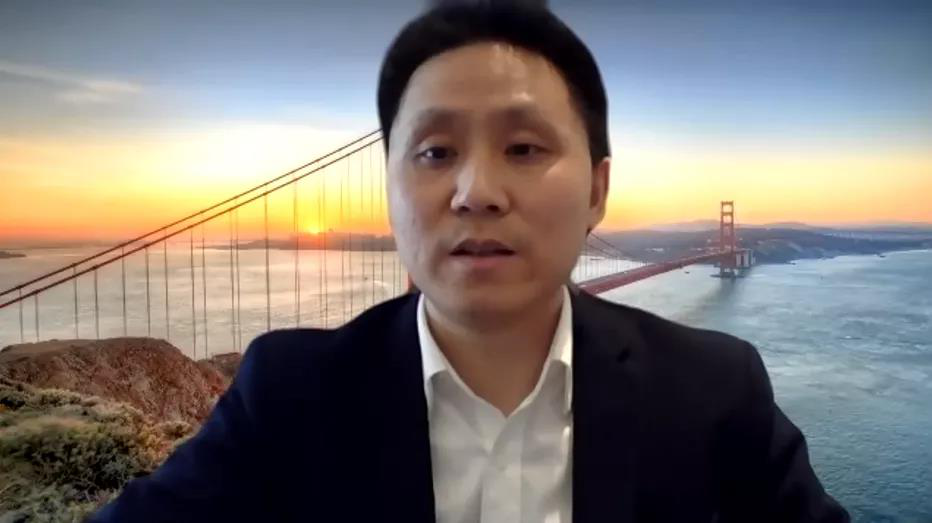
【Fast, Deep and Comprehensive: the Practice of News Reporting during the Pandemic】
Professor Mingxin Zhang, Dean of the School of Journalism and Information Communication of Huazhong University of Science and Technology
Professor Le Yin, Associate Dean of the School of Journalism and Communication of the University of Chinese Academy of Social Sciences, used two key words—reproduction and construction—to summarize the news practice during the pandemic. From the perspectives of time and space, the characteristic of news reports during the pandemic is the fusion of high and low speed; from the perspective of presentation, the characteristic of news reports is more applications of data and images; from the perspective of media roles, the media mostly adopt positive reports and use solutions to lead public communication with the hope of achieving public governance.
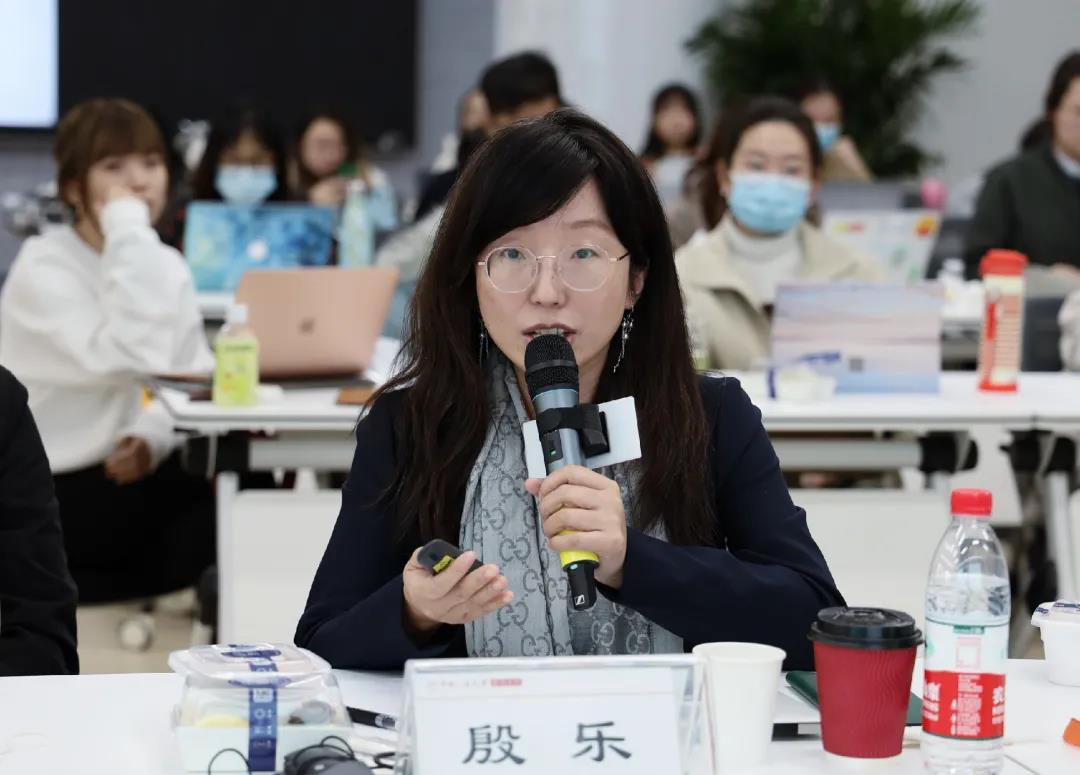
【Reproduction and Construction: News Practice during the Pandemic】
Professor Le Yin, Associate Dean of the School of Journalism and Communication of the University of Chinese Academy of Social Sciences
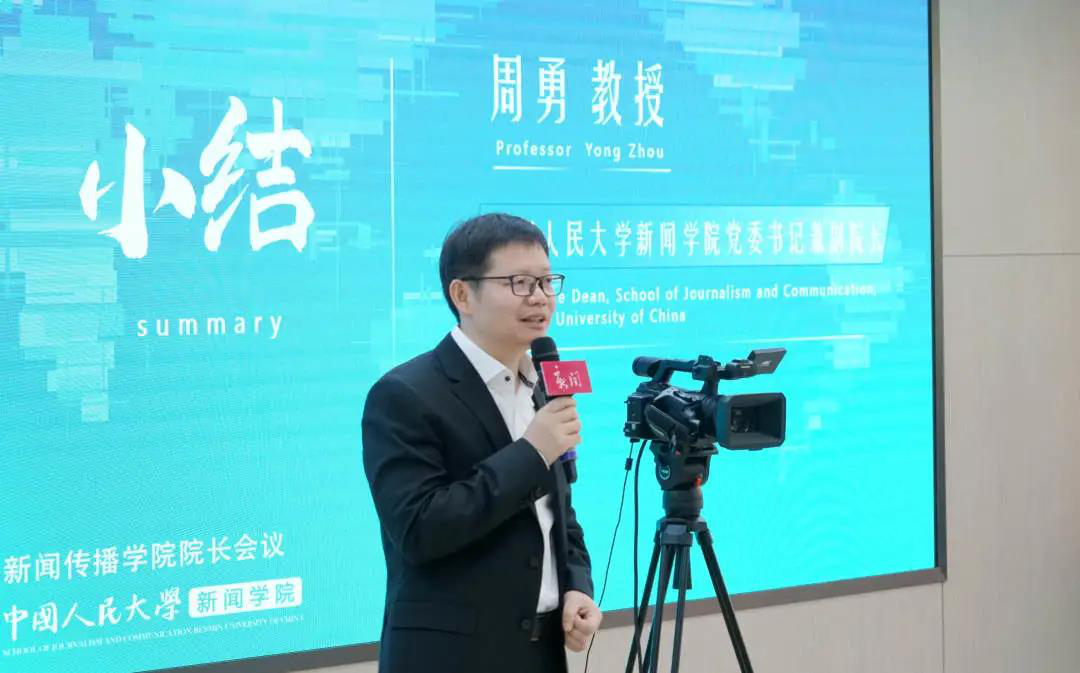
Yong Zhou, Professor, Party Committee Secretary and Associate Dean of School of Journalism and Communication, Renmin University of China
The conference was co-organized by the School of Journalism and Communication of Renmin University of China, the Center for Journalism and Social Development of Renmin University of China, and the Journalism and Communication Professional Committee of the Chinese Higher Education Association.
International Journalism and Communication Deans Conference is an academic brand project of the School of Journalism and Communication of Renmin University of China, held every two years. The conference held in 2018 invited deans from 18 schools of journalism and communication at home and abroad, as well as scholars, teachers and students from more than 130 universities. In 2020, while the pandemic has hindered intercultural exchanges to a certain extent, the School of Journalism and Communication of Renmin University of China still adheres to the philosophy of “facing new era, globalization and new technology” and look forward to exchanging dialogues with academic peers.



